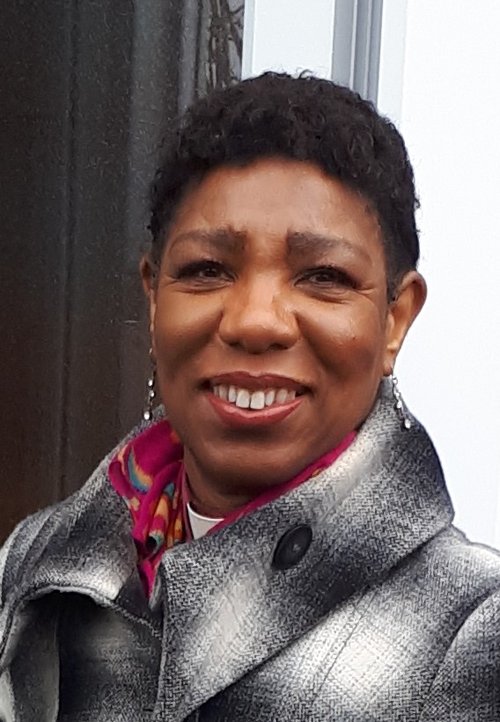The Revd Novette Headley, a native of Birmingham and of African-Caribbean heritage, grew up in the Methodist Church in Britain and was ordained as a Presbyter in 1993. She has served as a Presbyter in London, the Caribbean and Birmingham; as Superintendent Minister in Leicester and Bristol, and is now Chair of the Birmingham Methodist District. In this blog, Novette offers a personal reflection on the meaning of Black History Month.
History was always one of my favourite subjects at school. We learned about the early formation of Britain – of people coming from the north into regions of Britain, and in places, the indigenous people pushed aside; of the changes in agricultural patterns, the enclosure of land to the detriment of the common people; of the industrial revolution, and how that affected cities like Birmingham where I was born.

I think that I was fascinated by history because they were stories that I could imagine – of people’s lives, their struggles, and the way systems and technology altered the way people navigated daily living. For me, as a native of Birmingham, it gave me a sense of rootedness even though my parents were Caribbean. Alongside my Christian heritage, it was as if I had three histories – the faith heritage rooted in the stories of the Hebrew scripture and gospel of Jesus Christ, my African Caribbean culture and history, as well as the British industrial working-class history of the place where I was born.
I understand even more acutely why it is so important for people who have not known their birth-parents, or heard stories of their family heritage, to find their story and not feel cast adrift in the world. It's so important to have an anchor to which to ground oneself, a story that roots you – to identify why you look the way you look; where your gift for numbers comes from; is your fascination with the ocean connected to some ancestry that you don’t know about?
Our Christian scriptures are rooted in the story of God in relationship with a people. Throughout our scripture, there are individuals who become alert to the Spirit of God, and try to respond faithfully, wholesomely, truthfully and with integrity to God. The story comes alive to us, because we can imagine ourselves also trying to respond in these ways – sometimes succeeding and often failing.
Black History Month prompts all of us to search out more of our African heritage and history – the rich histories of the Nubian region to the east of the continent, the engineering and mathematical acumen of Kush and Egypt – to which the infant Jesus fled with Mary and Joseph – or Ethiopia to which the treasury official of Queen Candace returned after being baptised by Philip. African ancient history is filled with stories of civilisations, commercial trade, art and sculptures, architecture and universities stretching from places in the west of the continent such as Timbuktu in Mali, Benin, Burkina Faso or Niger, to Mozambique, Zimbabwe, Southern Africa and Namibia in the south.
One example is presented through the BBC’s Zeinab Badawi’s ‘History Of Africa’ series, - Kingdom of Kush - History Of Africa with Zeinab Badawi [Episode 4] (youtube.com) The Kingdom of Kush in today’s northern Sudan and its capital Karima, was previously known as Kerma on the River Nile. Around 5000 BC, the people in that region lived on fishing, agricultural farming watered by the Nile, and cattle rearing. The encroaching desertification of the Saraha from the west, drove more people towards the Nile Valley for more hospitable land. By 2500 BC Kerma had developed into the large urban centre for the Kushite people. At times they would be at war with their Egyptian neighbours to the north, and at other times in good trading relationship with them.
This would have been about 500 years before the birth of Christ, and certainly within the timeline of our Hebrew scriptures. It makes me wonder how the various cultures, theological thought, and spiritual practices of those people were influencing each other at that time. What of those understandings of God and the universe have survived until today? Can any of them inform our way of living well together?
During this Black History Month, let us not only look back into our history and remain there, but let us pull forward into the present any wisdom we uncover to help us live well together.
The Church, Slavery and Reparations
After the Flood
Starting in Black History Month, Methodist churches are invited to show the film “After the Flood: the Church, Slavery and Reparations” and begin a conversation about responding to the lasting damage caused by the transatlantic traffic in enslaved Africans. Organise a free showing of the film and send in your response.